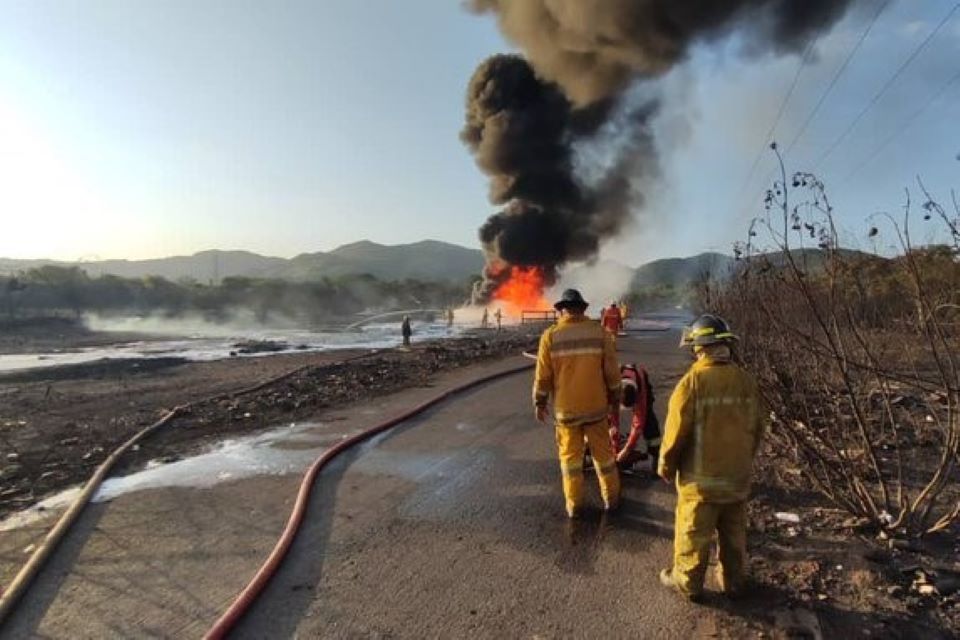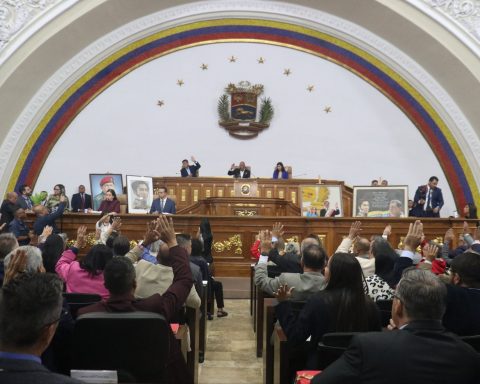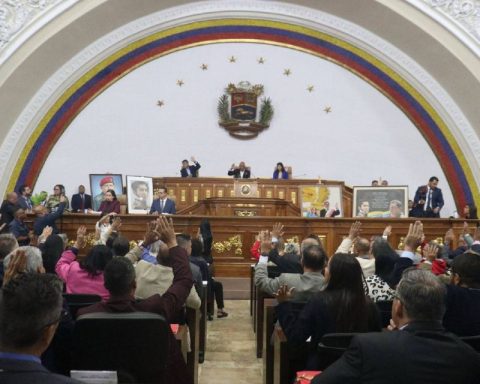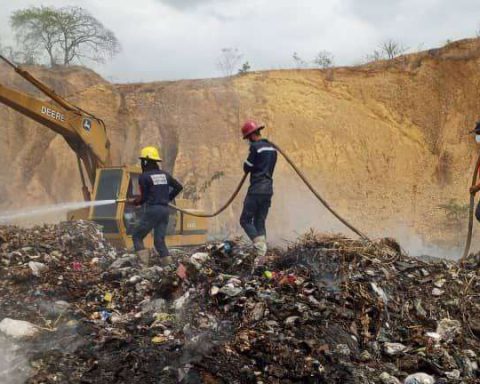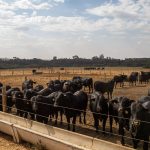In the last two years, several accidents have occurred due to the illegal manipulation of PDVSA gas pipelines and polyducts. Clandestine intakes of gasoline for resale on the black market have also been discovered in various areas of the country. Using a drill or a nail to open a hole, embed a nipple or any metallic instrument to extract gasoline, generates friction that can generate a spark and a large fire.
By Luisa Quintero and Ahiana Figueroa
Chief General Domingo Hernández Lárez, strategic operational commander of the Armed Forces, reported that they found more than 14 perforations to fuel pipelines in Yaracuy state. This discovery was the product of an operation to review the PDVSA infrastructure in the region, after an explosion generated by the manipulation of one of these facilities that left two died on February 6.
Through a message on his Twitter account, Hernández Lárez asked the public to denounce these types of events and “avoid sabotage by unscrupulous beings, who, far from obtaining a benefit from a fuel pimpina, harm the population.” Neither PDVSA nor the Ministry of Petroleum have publicly commented on the event.
More than 14 pipeline perforations have been found in Edo. Yaracuy. We call on citizens to avoid sabotage by unscrupulous beings, who, far from obtaining a benefit from a pimpina of fuel, harm a population. Report them!#FANB pic.twitter.com/3HWYKlfVU7
—G.J. Domingo Hernandez Larez (@dhernandezlarez) February 9, 2023
In the last two years, several accidents have occurred due to the illegal intake of fuel in this type of facility, the one before the one in Yaracuy occurred in July 2022 in the state of Monagas when a gas pipeline caught fire that generated large flames. On that occasion, the Minister of Oil, Tareck el Aissami, confirmed that it had been manipulated. “We are working to put out the fire caused by this criminal action,” he said.
In the west of the country, many illegal gasoline taps have also been discovered for the resale of fuel on the black market.
One of the most serious accidents of this type in Latin America was the one that occurred in Mexico in January 2019, in which the clandestine takeover of a gas pipeline left 93 people dead and 46 injured.
Danger
Breaking the pipes of a gas pipeline or polyduct through which gas, gasoline of different octane ratings, diesel and even jet fuel are transported, is extremely dangerous because it is highly flammable and more when transported in large volumes.
The energy expert Nelson Hernández explained that in Venezuela “Illegal use of services is very frequent” utilities such as water, gas, telephone or electricity by users.
In the case of illegal use in a polyduct, which generally transports gasoline, diesel and liquefied petroleum gas (LPG), he pointed out that this is mainly due to the scarcity of fuel or to earn income from illegal sales.
«To provide these fuels via extraction, a perforation is made in the tube (illegal intake). This intake does not have the technical specifications, which is a perennial risk situation, both for those who take advantage of the intake and for passers-by who pass through the site of the intake,” said the specialist.
Hernandez explained that Petroleos de Venezuela (PDVSA) must have within its activities to minimize potential risks of accidents, regular monitoring of pipelines (gas pipelines, polyducts, oil pipelines, electricity, steam lines). «This surveillance was done previously, with helicopter flights, and it was concluded with the program called “step by step”. Today, the drone can replace the helicopter.
For his part, engineer Rubén Pérez, who worked for many years at PDVSA, agreed that the risks are extremely high, since these products are highly flammable. He maintained that the mere fact of making a hole in the pipe can generate a spark or enough heat to combust the product that is being shipped through that pipeline at a given time.
He pointed out that the artisan connections in the illegal intake of fuel are often poorly executed, there are valves that do not close properly or with cracks and, consequently, the pipe loses fuel.
“This situation can generate a pool of fuel and nothing more than a cigarette butt or a piece of glass that magnifies the sun’s rays falls nearby, as they can create a large-scale fire,” Pérez said.
From the “artisan point of view”, people do it without protection and to the “good God” that the gasoline does not catch fire. Using a drill or nail to open a hole, embed a nipple, or any metal instrument to get gasoline, it generates friction that can generate a spark.
«It is incredible to see the skill that people have to open a hole in a pipe that is loaded with fuel. In any oil or hydrocarbon industry, the management of a multi-purpose pipeline is carried out in a very controlled manner, with special equipment and with all the security measures to mitigate risks,” said Pérez, a specialist from the Gas Energy Latin America consultancy.
Post Views: 322
